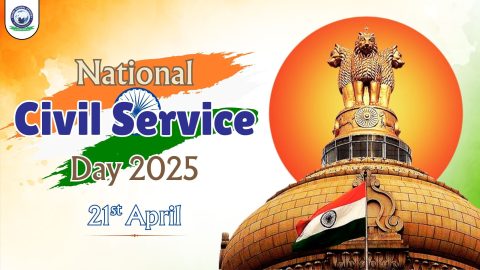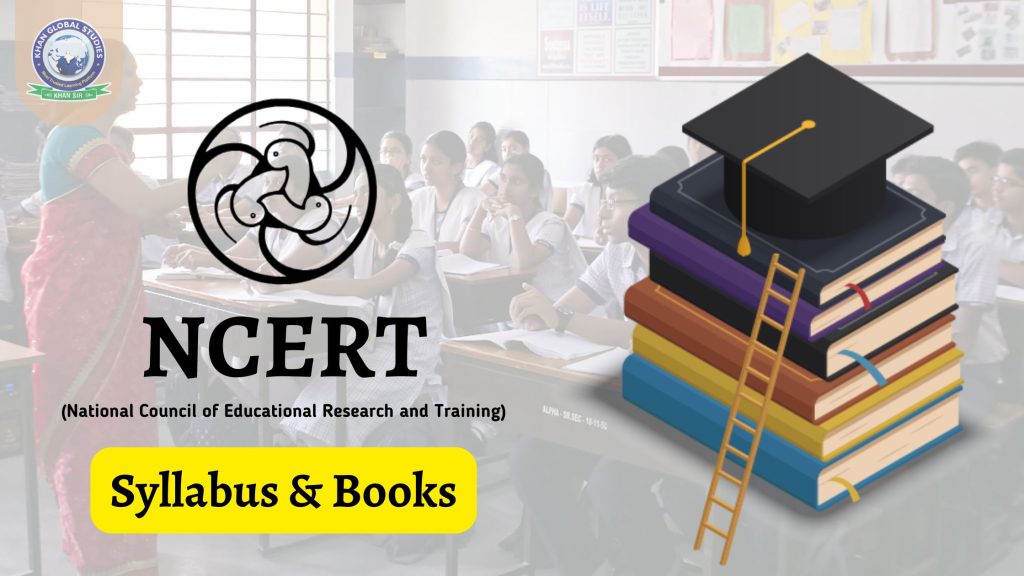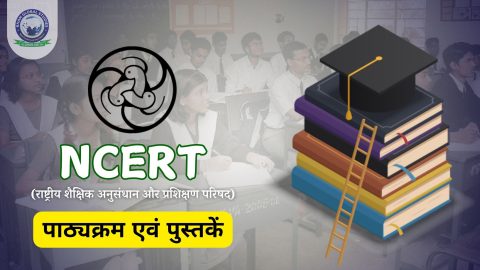The National Council of Educational Research and Training (NCERT) is an important institution in the Indian education system. Established by the Government of India under the Ministry of Education, NCERT syllabus plays a vital role in developing quality education and training teachers for better classroom performance. It is an autonomous organization responsible for researching educational policies, formulating school curriculum, and developing textbooks for schools. Its contributions have shaped India’s school education and have proven beneficial to both students and teachers.
History and Development of NCERT
NCERT was formally established on 27 July 1961 and began operating on 1 September 1961. NCERT was formed by the merger of seven educational institutions including the Central Institute of Education, the Central Textbook Research Bureau, and the National Institute of Audio-Visual Education. This integration aimed to improve the quality of education and prepare well-structured learning materials for schools.
The main objective of NCERT is to promote quality education for all and ensure that a unified curriculum is implemented in various schools. Textbooks published by NCERT are used from Class 1 to Class 12 and have been adopted by many Kendriya Vidyalayas (Central Schools) as well as many state boards.
Why is NCERT important?
NCERT books are the cornerstone of the Indian school education system. These textbooks present complex topics in simple, understandable language, making learning easier for students across the country.
Simplified language for better understanding
The simplicity and clarity of the language used in NCERT textbooks allow students to easily understand even the most complex concepts. This accessibility ensures that students from different linguistic backgrounds can benefit from quality education.
- Emphasis on Core Concepts: NCERT books focus on the fundamental concepts that are required for the examinations. The comprehensive coverage of subjects like history, geography, politics and environmental studies is useful not only for school exams but also for competitive exams like UPSC, SSC, railways, banking and others.
- Reliability and Accuracy: NCERT textbooks are written by subject experts, which ensures high-quality content. The materials are regularly revised and updated to meet the changing educational standards, ensuring their reliability.
- Time Management and Efficient Study: NCERT textbooks are comprehensive and concise, which helps students cover the vast syllabus without spending excessive time. This makes these textbooks especially useful for government exam preparation, where time management is crucial.
Key Activities of NCERT
- Curriculum Development: NCERT prepares syllabi for various educational levels from primary to higher secondary, ensuring that the educational needs of students are met at different stages of schooling. These syllabi are developed by carefully considering the age, cognitive abilities and learning outcomes of students.
- Textbook Creation: NCERT creates textbooks that are in line with the prescribed syllabus. These textbooks are adopted not only by the Central Board of Secondary Education (CBSE) but also by other state education boards. The focus is on providing accurate and engaging content presented simply and engagingly.
- Teacher Training: NCERT plays a vital role in training teachers through various workshops and programmes. This training helps teachers upgrade their skills and adopt new teaching methodologies. This ultimately increases the quality of teaching in schools, which greatly benefits students.
- Pedagogical Research: NCERT is also involved in educational research, which explores new teaching methodologies and learning processes. The findings of these research initiatives are applied to improve the education system, making teaching and learning more effective.
- Digital Education Initiatives: In the digital age, NCERT has expanded its reach by providing e-learning content. Platforms like DIKSHA provide NCERT textbooks and other resources, while the e-Pathshala app enables students and teachers to access NCERT content from anywhere. These digital initiatives are especially useful for students in remote areas, where there is limited access to physical learning material.
How to prepare with NCERT Books?
NCERT books are essential for preparing for school and government exams. To make the most of NCERT content, consider the study tips below:
- Thorough Reading: Students should read the entire textbook carefully to understand the basic concepts of each topic. NCERT books are designed to provide a strong foundation, so it is important to pay close attention to each chapter.
- Note-Taking: While reading, take detailed notes of the key points. Highlight important concepts and write questions that help you revise quickly.
- Regular Revision: Frequent revision of the material is important to retain the information. NCERT textbooks have practice questions at the end of each chapter, which help students assess their understanding and their readiness for the exam.
- Multiple Reading: It is advisable to read NCERT books multiple times. A single reading may not be enough to absorb all the information. Reading multiple times ensures that students develop a deep understanding of the subject.
- Practice Questions: Answering the questions given at the end of each chapter in NCERT books is a must for exam preparation. This practice helps students get familiar with the exam format and boosts their confidence.
- Supplementary Material: While NCERT books cover the essential concepts, students can refer to additional resources for a more in-depth understanding when required. However, mastering NCERT should always be the primary focus.
Importance of NCERT in Competitive Exams
NCERT books are not only important for school education but also play a vital role in competitive exams. Many exam questions are taken directly from NCERT textbooks, making them indispensable for aspirants of UPSC, SSC, and state-level exams.
- UPSC Civil Services: For subjects like History, Geography, Polity and Environment, NCERT books form the core of the syllabus for both Prelims and Mains. They provide the base for the more advanced readings required for the Civil Services Exam.
- SSC and Banking Exams: In exams like SSC and Banking, where general knowledge is a major component, NCERT books are highly useful. The simplicity of the language and the depth of the content help candidates build strong subject knowledge.
How to Align Government Exam Preparation with the NCERT Syllabus?
When preparing for government exams, it is essential to align your study plan with the NCERT syllabus. Here is how:
- Study the exam syllabus: Start by understanding the syllabus of the exam you are preparing for. Match the syllabus with the respective NCERT textbooks for efficient preparation.
- Systematic study: Understand the topics in a sequential manner. For example, in History, start from Class 6 and proceed up to Class 12 for a comprehensive understanding.
- Mock Tests: Take mock tests and solve the previous year’s exam papers to get a better understanding of the exam pattern and your preparation.
- Study Plan: Create a detailed study plan with time for reading, revision and mock tests so that you can thoroughly cover all the topics and subjects.
Conclusion
NCERT plays a vital role in shaping India’s education system. Its textbooks provide high-quality education to students, preparing them for success in school and beyond. Whether it is school exams or competitive exams, mastering NCERT textbooks is a must for students aspiring for academic excellence.




